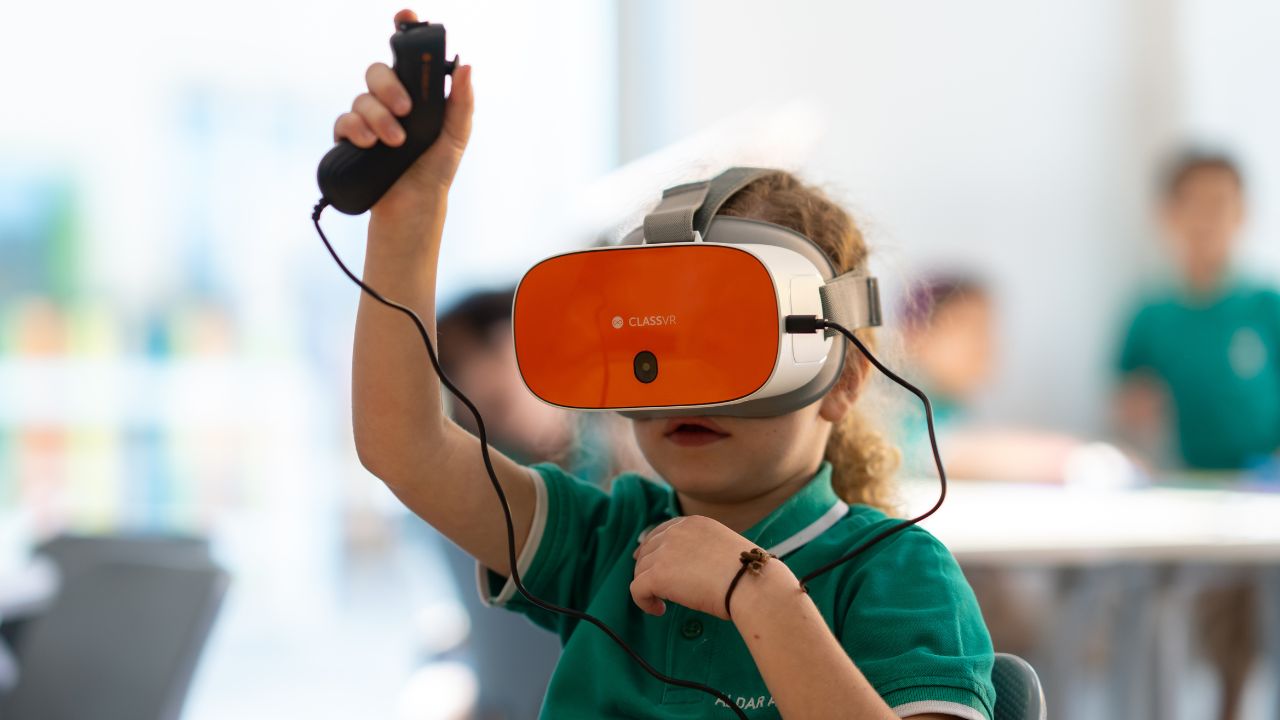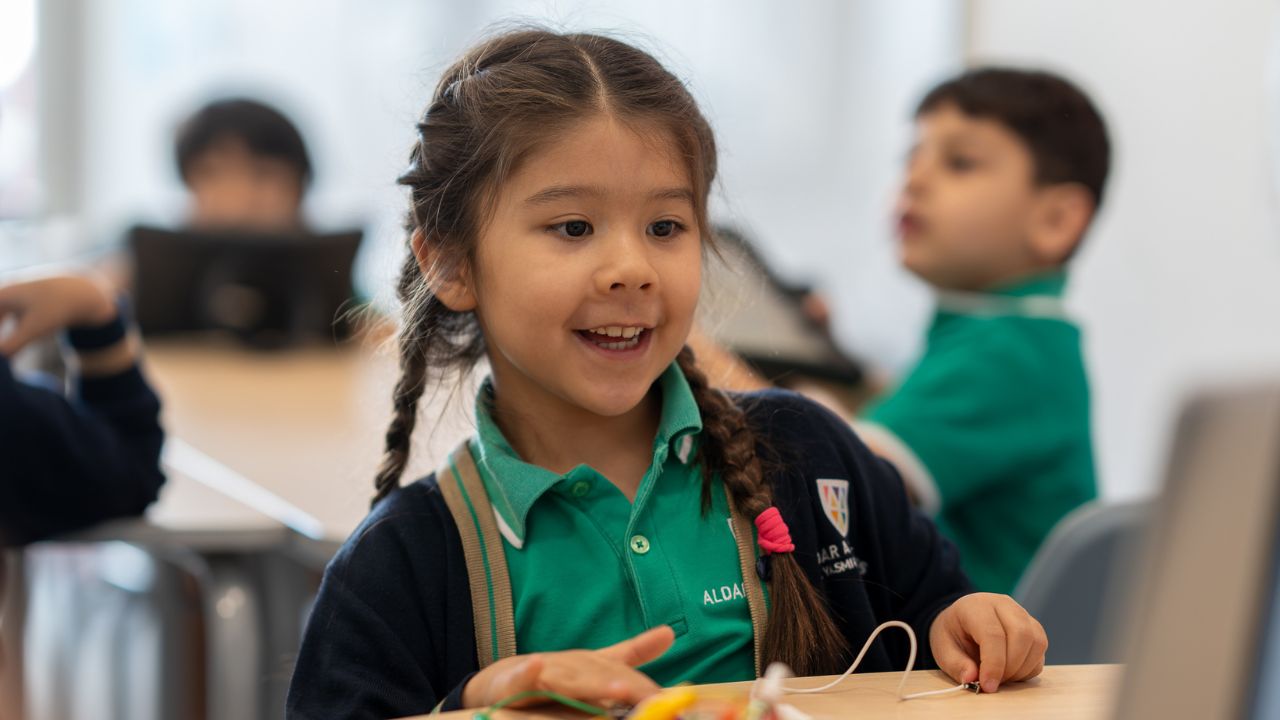
Digital innovation isn’t about devices or distraction at this cutting-edge Abu Dhabi school
PARTNER CONTENT: Digital innovation is evolving at lightning speed and schools are facing a new kind of responsibility; to not only keep pace, but to lead the charge.
For today’s students, tomorrow’s careers may not even exist yet. What will remain essential is their ability to navigate, understand, and shape a digital-first world.
For many parents, though, the words “screen time” trigger concern; conjuring images of passive scrolling, disengagement, and missed real-world connections.
But what if technology in education could be something else entirely? What if it could be intentional, empowering, and deeply human?

At Yasmina British Academy (YBA) in Abu Dhabi, digital innovation isn’t about devices or distraction. It’s about purpose; giving young learners the tools not just to use technology, but to master it with curiosity, creativity, and care.
This is screen time with soul: strategic, ethical, and designed to prepare students not just for what’s next, but for what they can help create.
Technology that enhances – not replaces
At YBA, digital tools are viewed as supplements to excellent teaching; not replacements.
“We don’t chase trends,” says Assistant Principal Paul Dallyn, “we focus on what truly improves learning outcomes.”
Across every Year group, technology is used to personalise, amplify, and extend learning – not to distract from it. The school has taken a clear stand: digital innovation must be empowering, not convenient.
Whether it’s AI-supported feedback, robotics’ challenges, or virtual reality expeditions, each tool is introduced to support teaching goals, not to automate them.
Early digital literacy
YBA’s computing curriculum is bespoke, built in-house, and begins as early as Nursery. Children as young as three engage in coding and robotics, learning how to problem-solve, collaborate, and think critically through technology.
“At YBA, technology is never passive,” explains Liam Clarke, the school’s EdTech Coach and ICT Curriculum Lead for Primary, “it’s about using digital tools to explore, create, and connect.”
This foundation is then expanded through innovative topics such as coding and robotics media design, virtual reality, artificial intelligence and more.
From Apple product expertise through to Everyone Can Create curriculum projects, to navigating immersive virtual environments with VR headsets, students build essential future-ready skills all scaffolded with age-appropriate pedagogy.
AI with purpose
AI is treated at YBA not as a threat, but as a powerful enabler. Tools like Century Tech, MagicSchool AI, and Google’s NotebookLM are seamlessly integrated into the classroom to offer real-time feedback and personalise learning journeys. “AI is not new; it’s just evolving,” says Paul.
“We have been using adaptive tools for years. What is different now is the scale, speed, and potential of AI to enhance how we teach and how students learn.”
Crucially, AI use is embedded in student agency. From creating immersive podcasts to generating feedback through AI-powered writing tools, students are taught to use these platforms with responsibility and discernment; developing not just digital skills, but digital wisdom for all learners.
Real engagement
Far from passive, learning at YBA is dynamic, immersive, and full of joy. Liam shares several powerful examples of how this comes to life in the classroom.
Creative writing is inspired by virtual reality adventures through a fantastical Chocolate Souq, while in Year 6, students learn to programme drone flight paths; applying computational thinking alongside key curriculum concepts like angles, measurement, speed, and aerodynamics.
YBA pupils take learning to new heights through a range of STEAM-based competitions each year.
Three YBA teams reached the Formula Ethara Nationals and others winning in regional LEGO League competitions – showcasing creativity, teamwork, and real-world problem-solving through engineering and robotics.
One standout Year 2 project had students coding characters to travel between iconic UAE landmarks, as 3D-printed models of the Zayed National Museum and Burj Khalifa took shape around the classroom.
State-of-the-art LEGO kits are also used across subjects, helping students explore forces, motion, and energy- sometimes even through a custom-built mini-golf course.
These are not stunts. They are carefully designed learning experiences that blend traditional skills (like descriptive writing, logic, and teamwork) with future-facing capabilities (like coding, prototyping, and data fluency).
The school’s approach is deeply pedagogical. “We don’t lead with the platform; we lead with the question: what will have the greatest impact on teaching and learning?” comments Paul, emphasising that technology is only a tool; what truly matters is how it supports meaningful instruction, student engagement, collaboration and improved educational outcomes.
Equipping students for a changing world
YBA is preparing its students for the world they will grow into, where digital literacy, AI fluency, and critical thinking are non-negotiable.
From foundational coding in Early Years to advanced independent research tools in Secondary, students are not just absorbing knowledge, they are learning how to ask better questions, solve more meaningful problems, and express themselves with confidence.
In a region known for rapid growth and fierce educational competition, Yasmina British Academy stands out; not for having the most devices, but for having the clearest direction.
This is a school whose leadership and educators see digital innovation not as a gimmick, but as a responsibility. One that believes in the power of technology to transform lives when guided by teachers, fuelled by curiosity, and grounded in wellbeing.
Follow Yalla for all the latest education news
